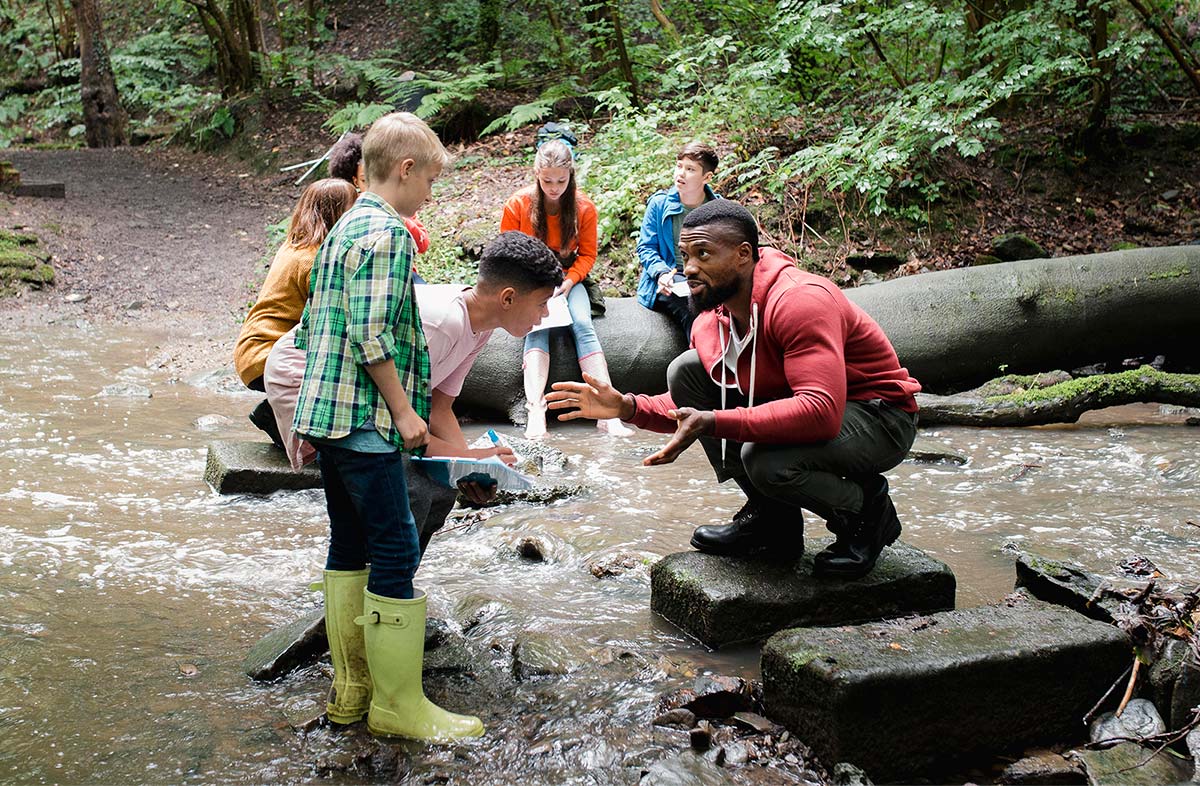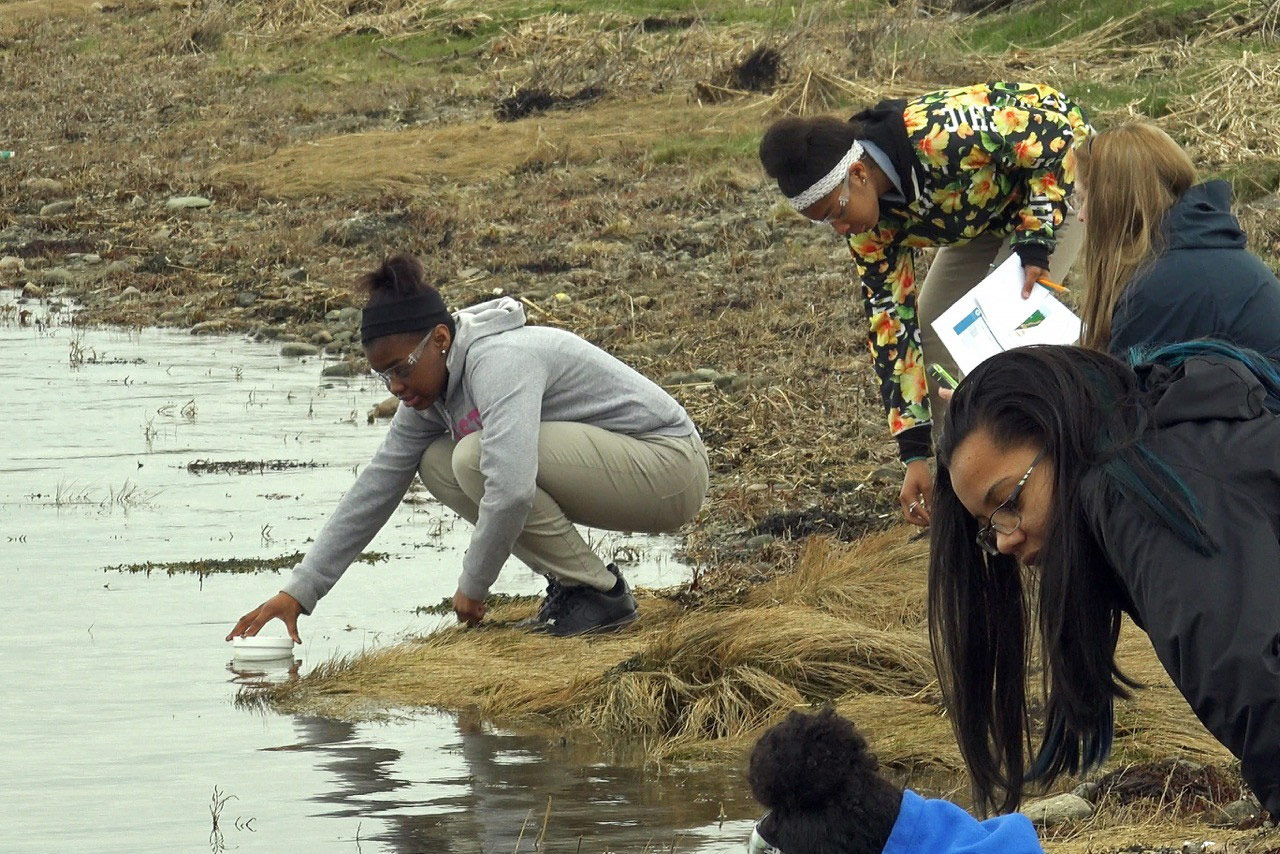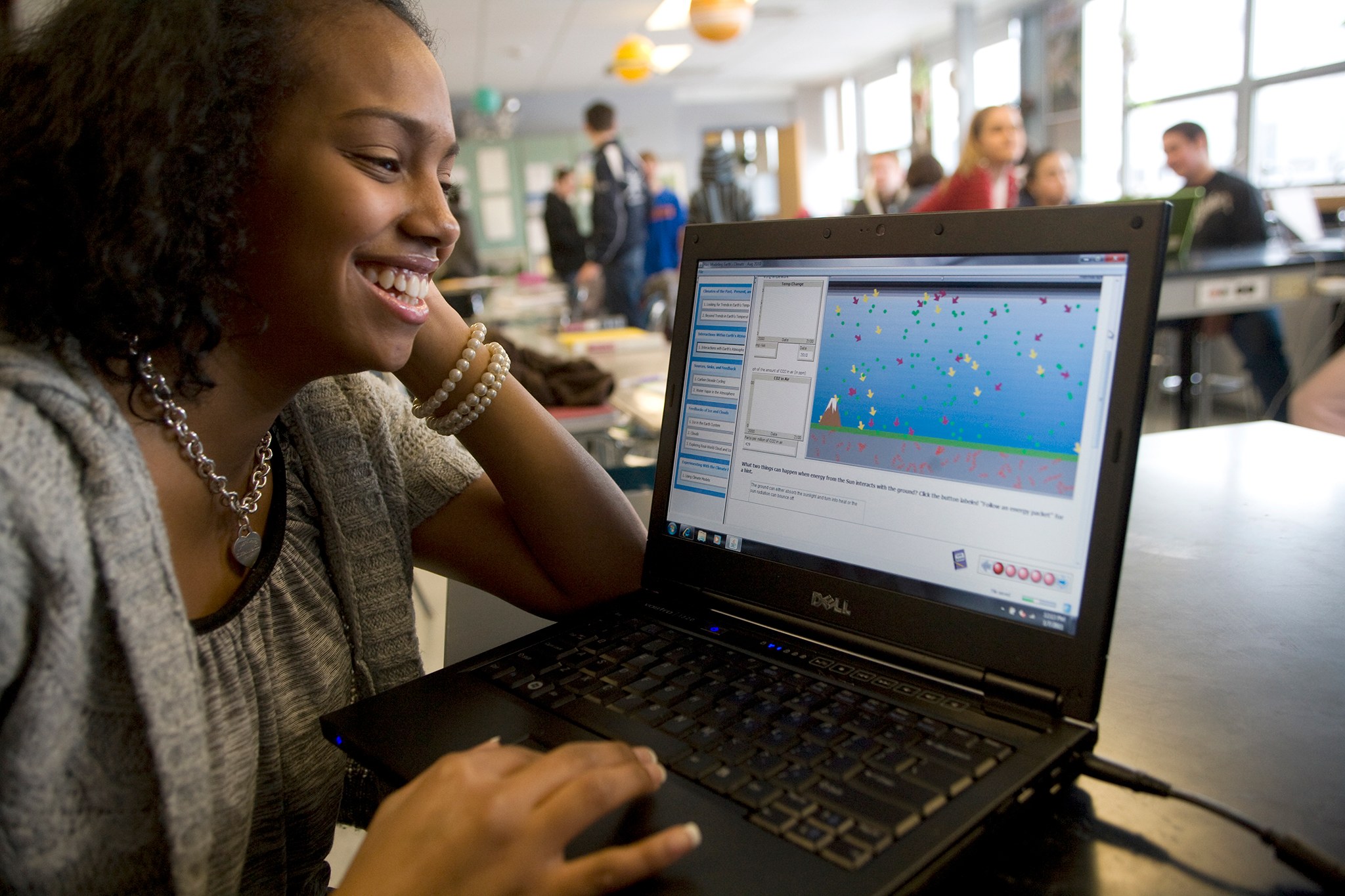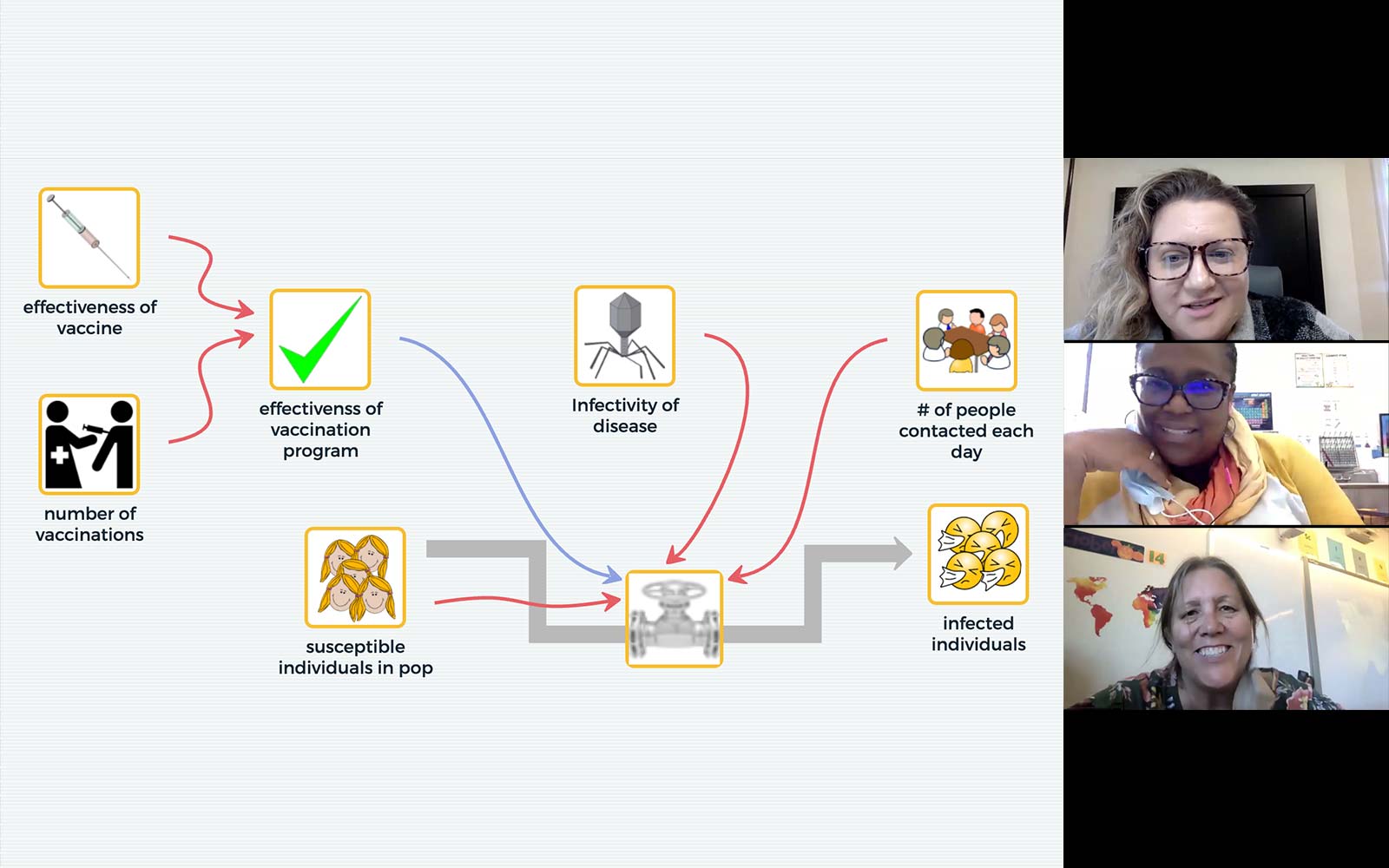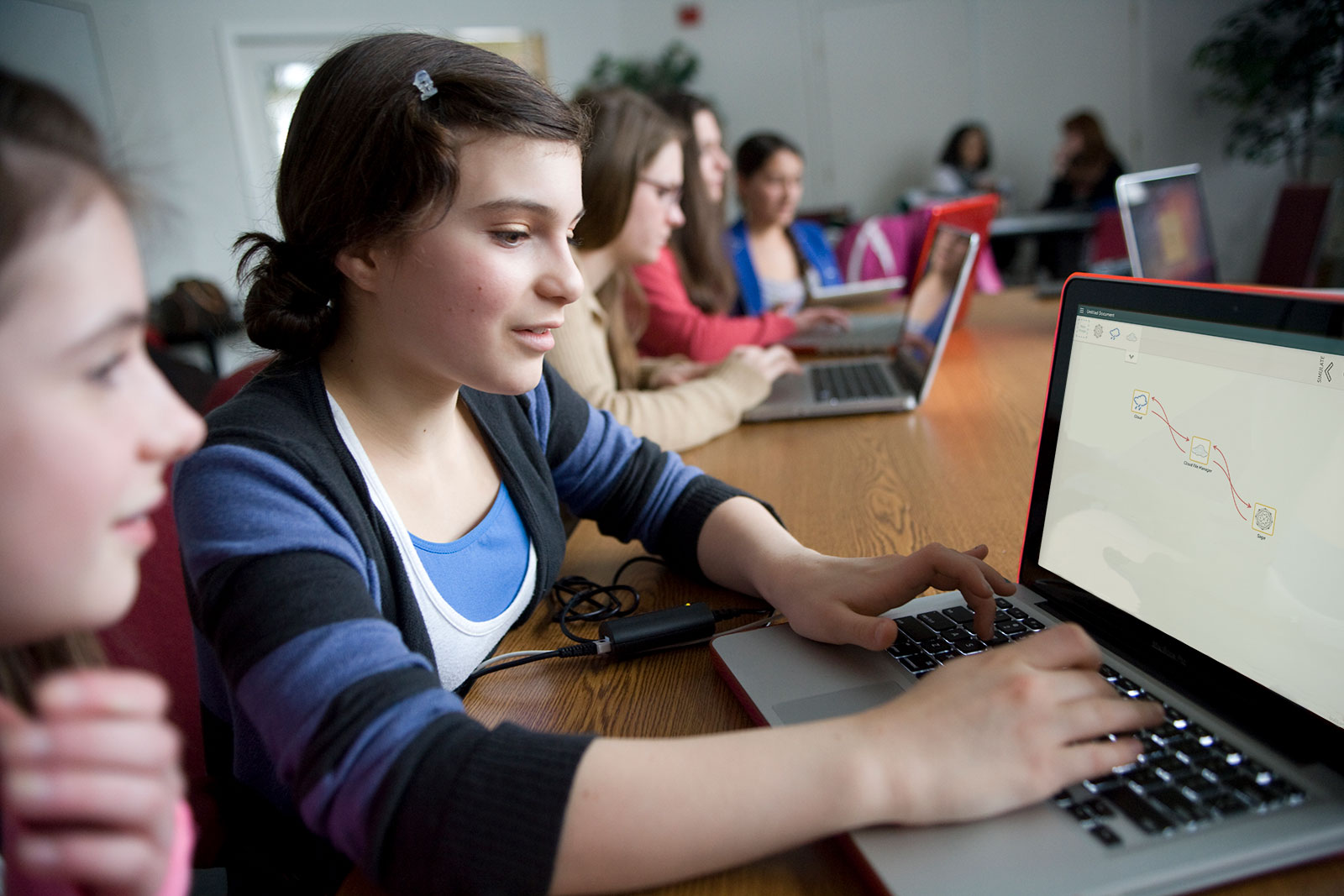WATERS
Importance
Across the country, every minute of every day, water glasses are filled from a tap, toilets are flushed, laundry is washed, and bathtubs are filled almost without a thought as to how the water got there, where it goes when it leaves, or who helps to assure that our water is safe. As the need for clean water increases with a growing population, so does the need for increased participation in water careers. Students from all backgrounds should learn about their local watersheds as well as the wide variety of available water careers.
The Watershed Awareness using Technology and Environmental Research for Sustainability (WATERS) project is developing and researching a student-centered, universally accessible curriculum for teaching water concepts and water career awareness. The project is applying principles from Universal Design for Learning (UDL) to create a powerful, scalable approach to water learning open to all students. By providing flexibility in information presentation and student responses, reducing barriers in instruction, and offering appropriate supports and challenges, the WATERS project is paving a path to increased access to proven curricula and approaches that hold the potential to greatly increase awareness of and engagement with water concepts and career pathways in learners nationwide.
Students across the United States are all affected by and dependent on water quality issues, from experiencing severe droughts to awareness of floods and drinking water issues. The curriculum incorporates hands-on local data and geospatial analysis to explore geographic, social, political, and environmental concepts and problems related to students’ watersheds using inclusive learning strategies and UDL technologies. The goal is to increase student interest in STEM careers by broadening the population of students who believe they have the ability and skills to pursue STEM careers.
Research
Project research investigates the impact of integrating purposefully designed inquiry activities with embedded UDL technologies and career-oriented activities in a diversity of middle school science classrooms in California, Pennsylvania, and Virginia.
Research on student outcomes is guided by the following questions:
- How does engagement in an inquiry project-based middle school watershed curriculum impact students’ confidence and efficacy in STEM subjects, 21st century learning skills, and interest in STEM careers?
- How does UDL support all learners (students who are intellectually gifted, students learning the English language, students who are economically disadvantaged, or students with disabilities) in an inquiry project-based middle school watershed curriculum?
Publications
- Krauss, Z., Kline, D., Marcum-Dietrich, N. I., Stunkard, C., Kerlin, S., & Staudt, C. (2022). Protecting our waters: A 5e lesson sequence derived from a national science foundation-funded middle school watershed sustainability curriculum. Science Activities, 59(2), 97–105.
- Marcum-Dietrich, N., Stunkard, C., Krauss, Z., Kerlin, S., Staudt, C., Muenz, T., & Kline, D. (2022). Stormy waters: Covid-19 transition to online learning for an environmental education middle school curriculum. Science Educator, 28(2), 97–106.
- Staudt, C., Muenz, T., & Kline, D. (2021). Monday's lesson: Determine stream health. @Concord, 25(2), 7.
- Marcum-Dietrich, N., Kerlin, S., Hendrix, A., Sorhagen, N., Staudt, C., & Krauss, Z. (2021). Model my watershed: An investigation into the role of big data, technology, and models in promoting student interest in watershed action. The Journal of Environmental Education, 52(6), 384–397.
- Staudt, C., and, D. K., & Massicotte, J. (2020). Monday's lesson: Finding your watershed. @Concord, 24(2), 7.
